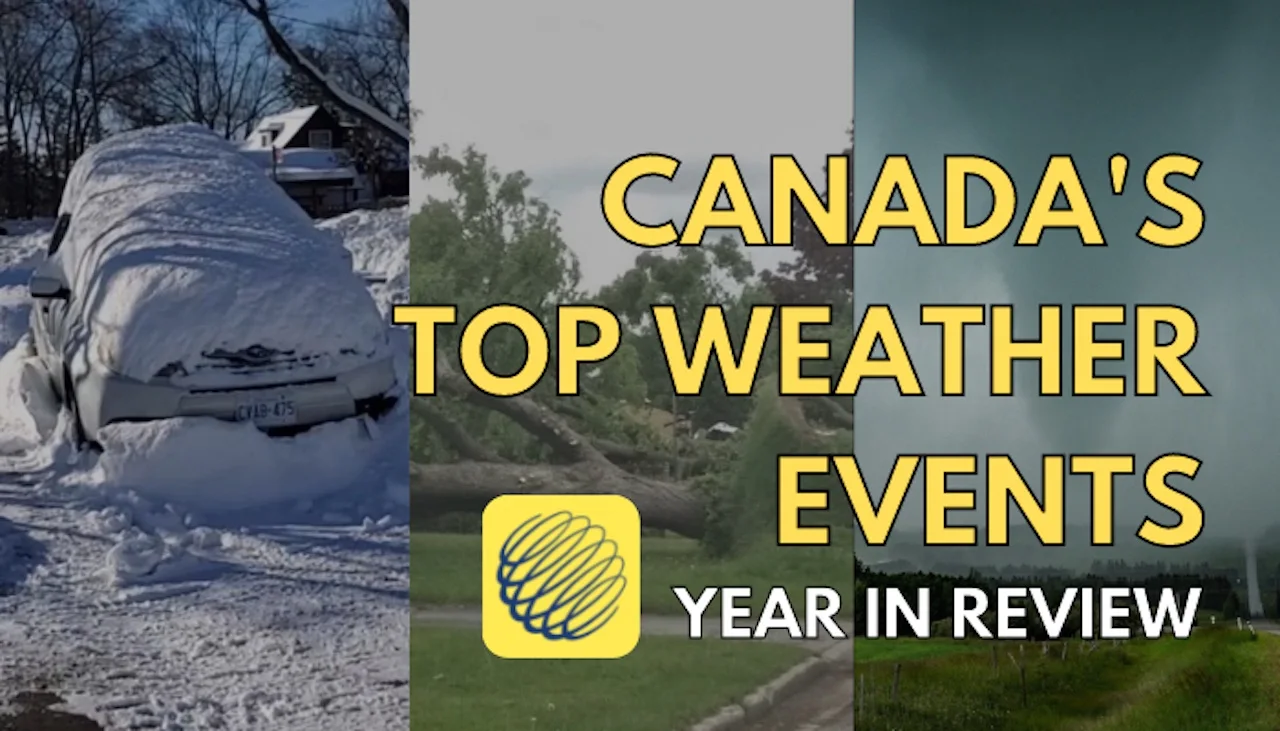
Whirlwind of destruction, snow and rain: Canada's wild weather in 2022
There is plenty to talk about when it comes to severe weather in Canada in 2022 -- from a damaging derecho and hurricane to substantial snowstorms, drought and flooding, just to name a few events.
The year 2022 had its fair share of extreme weather moments, perhaps on more of an even playing field across the country -- as opposed to B.C. taking much of Mother Nature's wrath in 2021.
That's not to say B.C. has been quiet, either, with wildfires, heat, heavy rain, considerable drought, and even snow and cold making headlines on the West Coast this year. But the last 12 months have been tamer for B.C. by comparison.
SEE ALSO: Nearly half of Canada's population hit by derecho, why it was harmful
Meanwhile, the rest of the country also had plenty of stormy, and destructive, weather to talk about.
2022 off to a quick, stormy start with significant snow
The year actually started and ended off on a stormy note in a good portion of Canada.
January was a notable month for Atlantic Canada, especially. It had three consecutive weekends of winter storms in the region. One of the events was a weather bomb, which produced damaging winds and blizzard conditions for some.
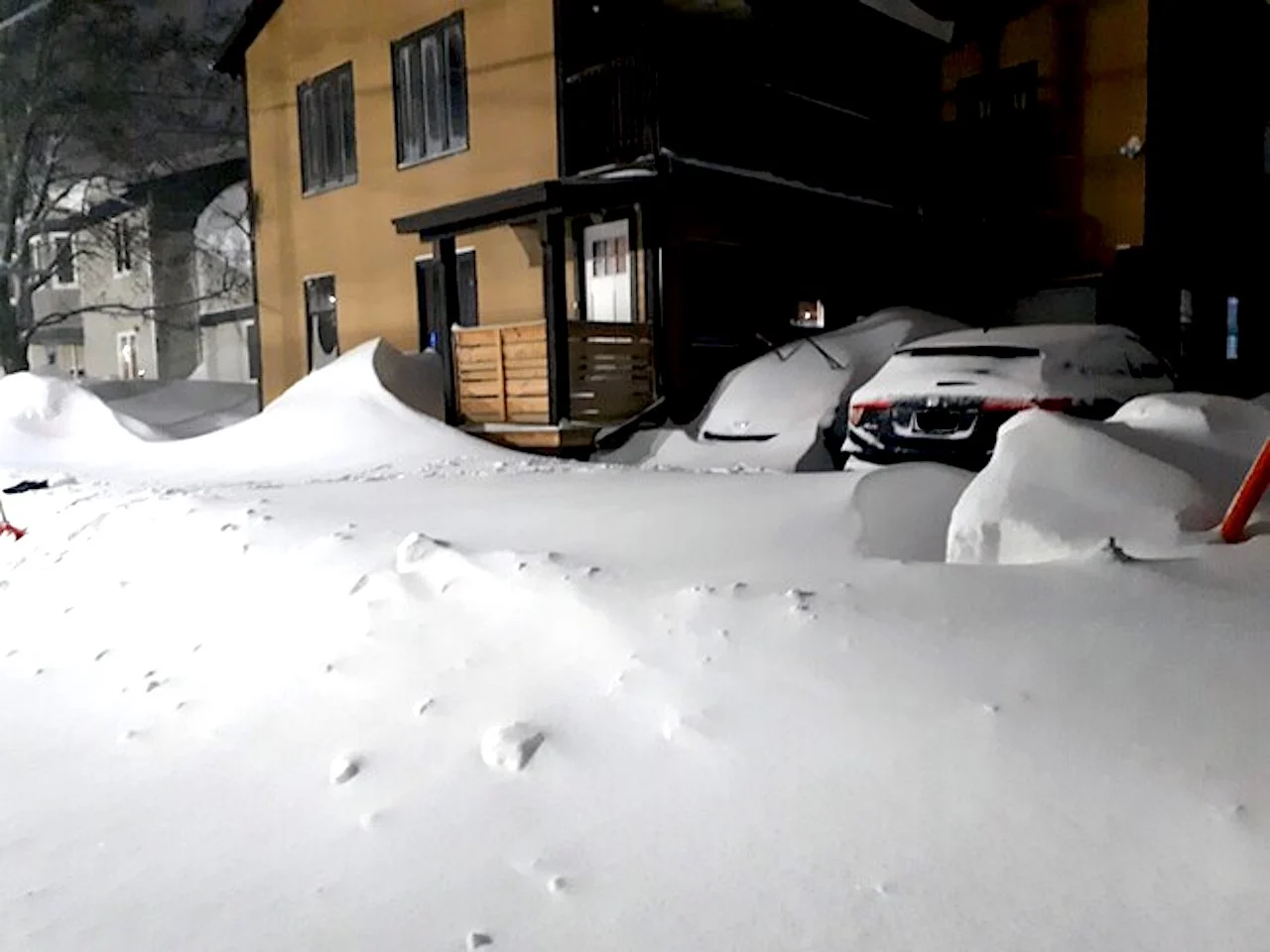
Moncton, N.B., snow.(Michael Higgs/Submitted)
Southern Ontario also received a winter wallop in January, with some areas seeing 55 cm of snow. The city of Toronto paid more than $17 million for snow removal. The Jan. 17 storm in Toronto produced one of its top 10 snowfall amounts ever recorded.
Come springtime, the focus shifted to the Prairies where (in addition to wicked winter storms) flooding was a significant issue for farmers in Manitoba, delaying crop production. In fact, southern Manitoba experienced one of its wettest meteorological springs on record, according to Environment and Climate Change Canada (ECCC).
One of Canada's most significant and/or talked-about event in 2022 was the deadly derecho that cut an approximate 1,000-km damage path across southern Ontario and Quebec in May. The timing and location of this derecho made it particularly destructive and deadly with at 11 fatalities reported, hitting Canada's most populous corridor when people were out and about. It led to widespread power outages and insured damage costs topping $1 billion -- making it the sixth largest in terms of insured losses in Canadian history.
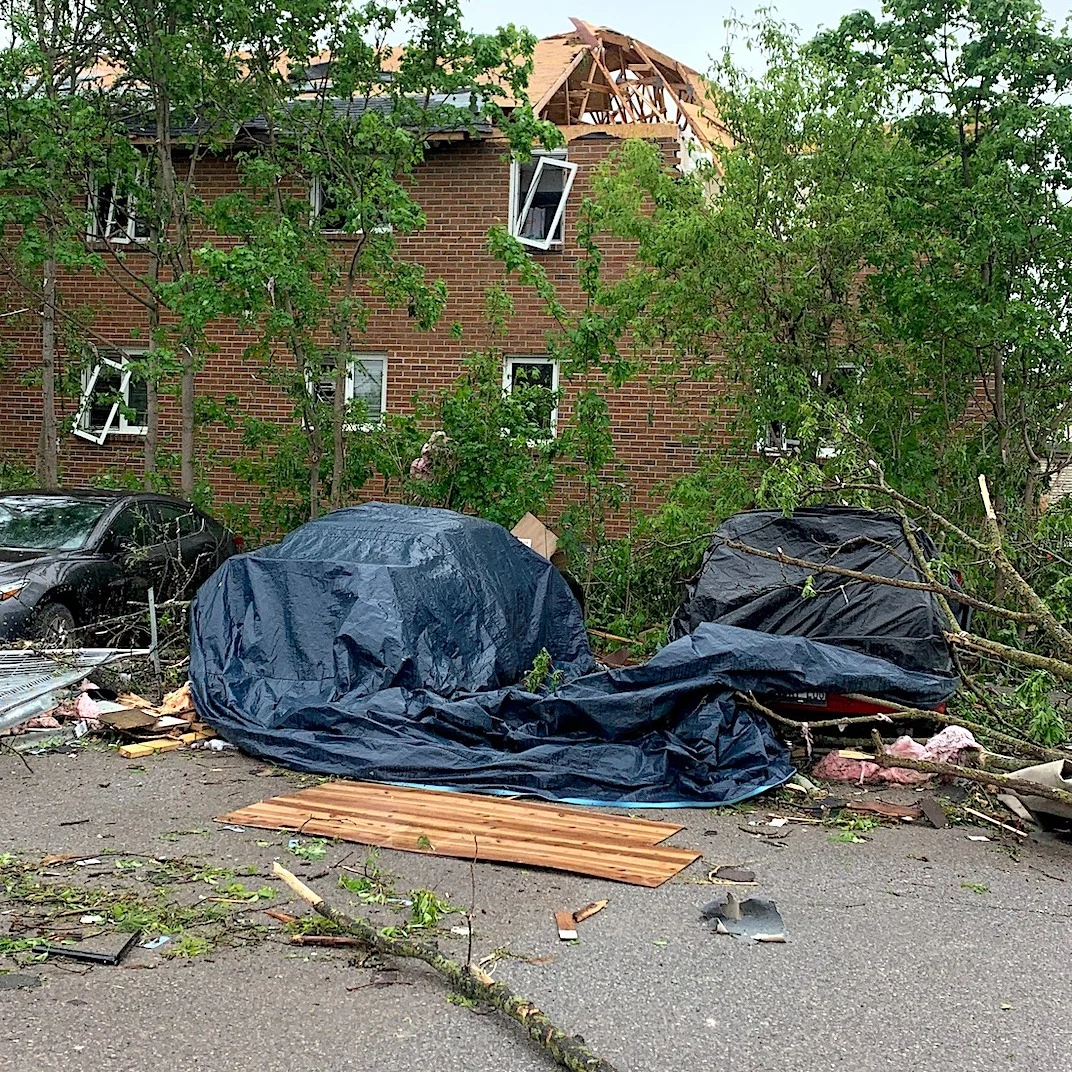
(Mark Robinson/The Weather Network)
The Prairies are no stranger to severe weather in the summer. In early July, the region endured an extremely active pattern, with at least 11 tornadoes confirmed to have occurred across the three provinces in five days -- lasting from July 5-10.
Not every day with a tornado threat panned out, but four out of the five days featuring a risk produced twisters.
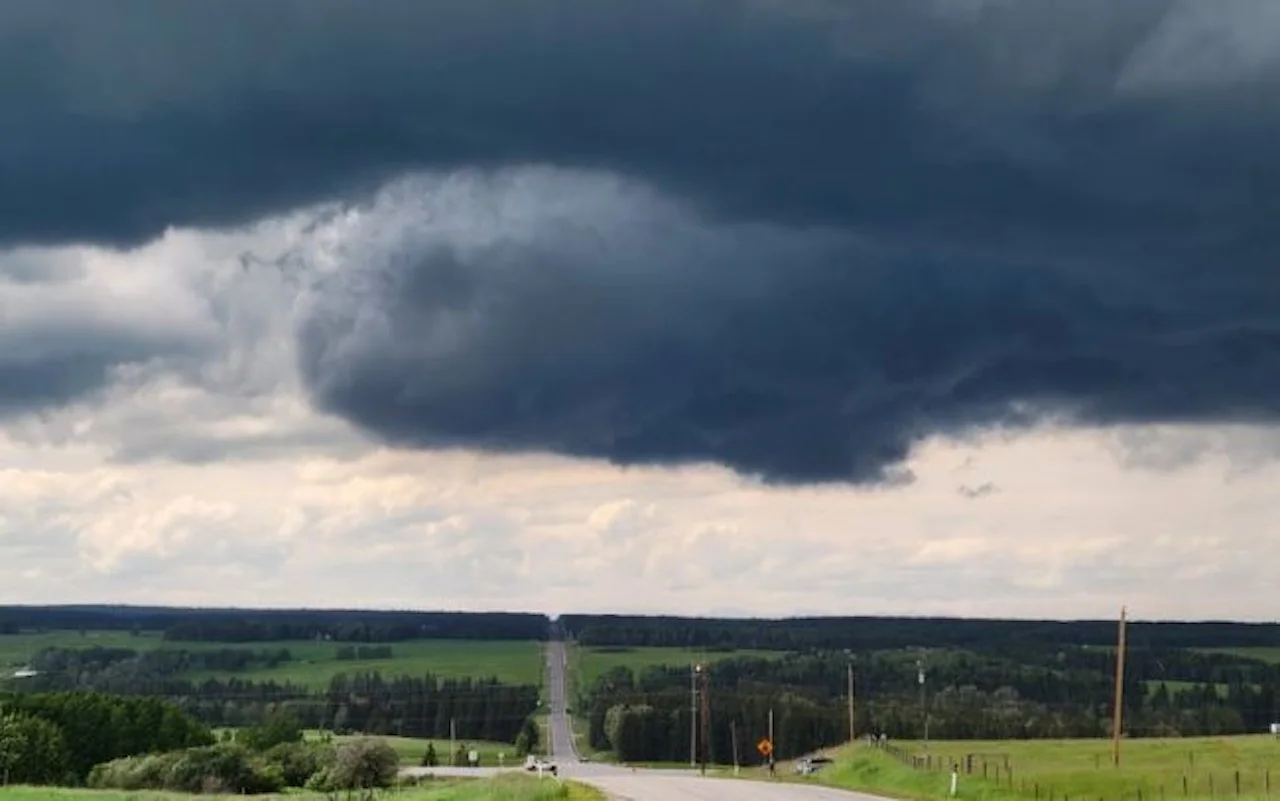
(Kyle Brittain/Submitted)
More notable entries in the summer included the number of wildfires on both of Canada's coasts, an occurrence that is more reserved for just B.C, and not Atlantic Canada. But, parts of central Newfoundland experienced the worst wildfires the province had seen in decades. In early August, Newfoundland was fighting two major forest fires. The areas of Paradise Lake, as well as the Bay d'Espoir Highway, collectively burned 228 square kilometres of the province's forests, isolating communities and prompting air quality statements.
For B.C., multiple blazes -- namely the Keremeos Creek and Nohomin Creek wildfires -- resulted in numerous evacuations. The latter fire was also responsible for at least 10 structures getting damaged.
WATCH: At $660M Fiona is the costliest weather event to ever hit Atlantic Canada
The East Coast made headlines again in the fall, with the landfalling Hurricane Fiona -- the costliest extreme weather event ever recorded in Atlantic Canada, with an estimated $660 million in insured damages, according to a report from Catastrophe Indices and Quantification Inc. (CatIQ).
By all accounts, Fiona was a historic storm, making landfall on Nova Scotia’s Canso Peninsula in the early hours of Sept. 24, with a verified minimum pressure of 932.6 mb, making it deepest low-pressure system ever recorded on Canadian soil.
Speaking of records, there were plenty of others broken including this, this and this, among other notable feats accomplished this year.
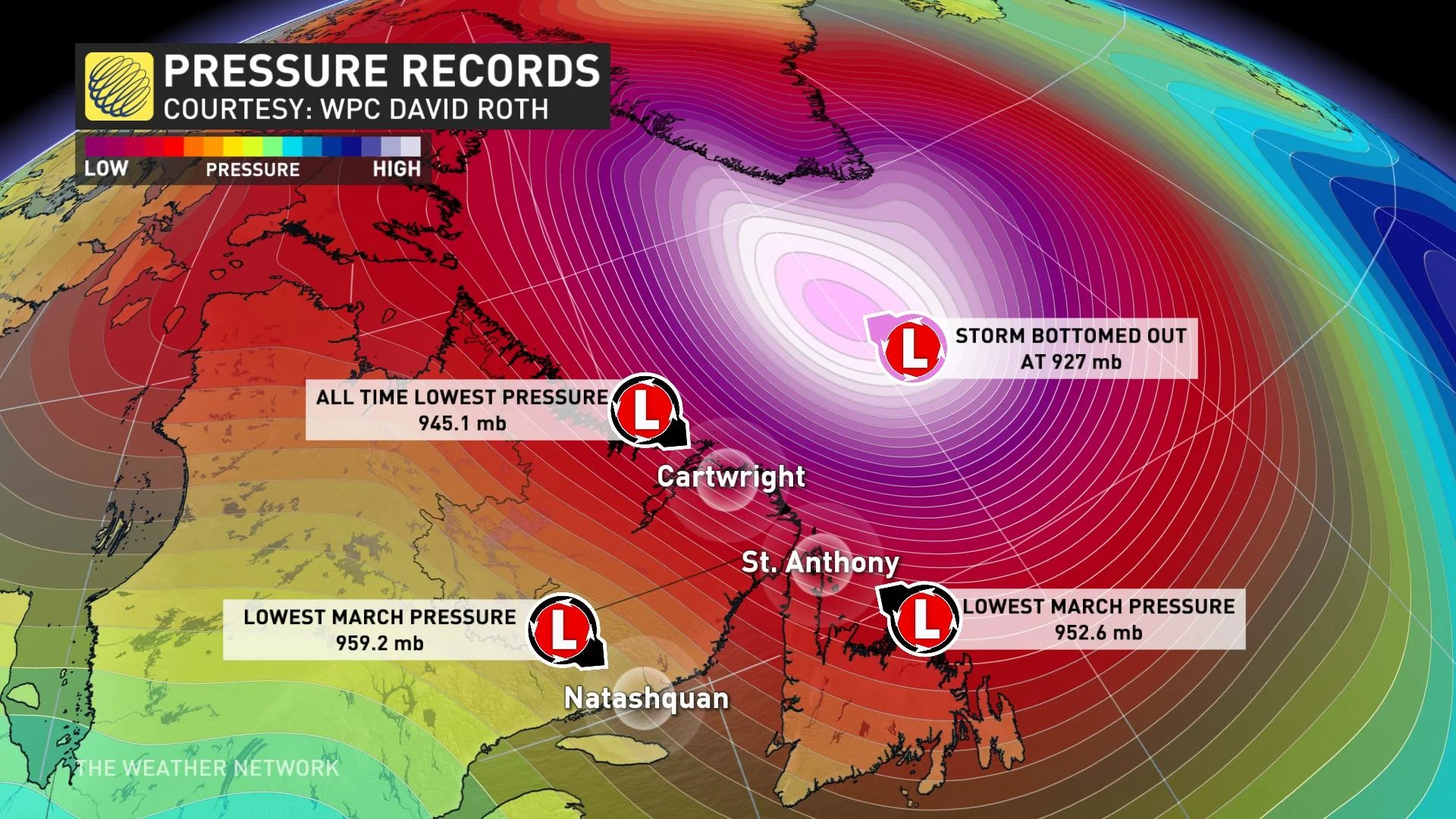
The year ends with historic, massive snowstorm that wreaked havoc across North America
With 2022 coming to an end, we can't forget about the recent, epic winter storm that had severe implications for holiday travel, forcing millions to change their plans and even stranding many in some locales.
The massive holiday winter storm that tore a 3,000-km path across North America will be remembered for the mounds of snowfall it left behind, the death toll south of the border and the number of road closures and power outages, as well as the ensuing vehicle pileups and significant holiday travel delays. The recovery efforts are still ongoing and may likely continue into the new year for some areas.
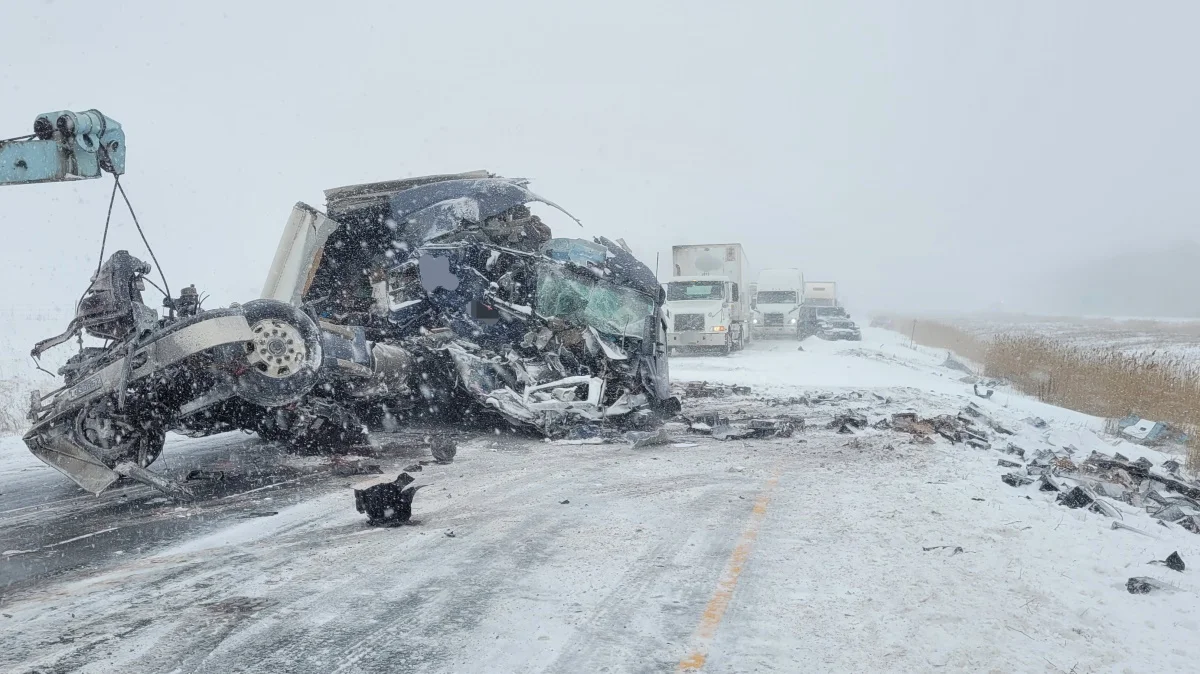
This particular storm made for interesting dinner conversation during the holidays, and will likely be talked about for years to come.
We couldn't possibly cover all of the extreme, noteworthy weather events in Canada in 2022 in this artice. For additional coverage, watch the video at the top of the article.
Thumbnail contains an image courtesy of the Northern Tornadoes Project (toppled tree) and Kyle Brittain (tornado).






